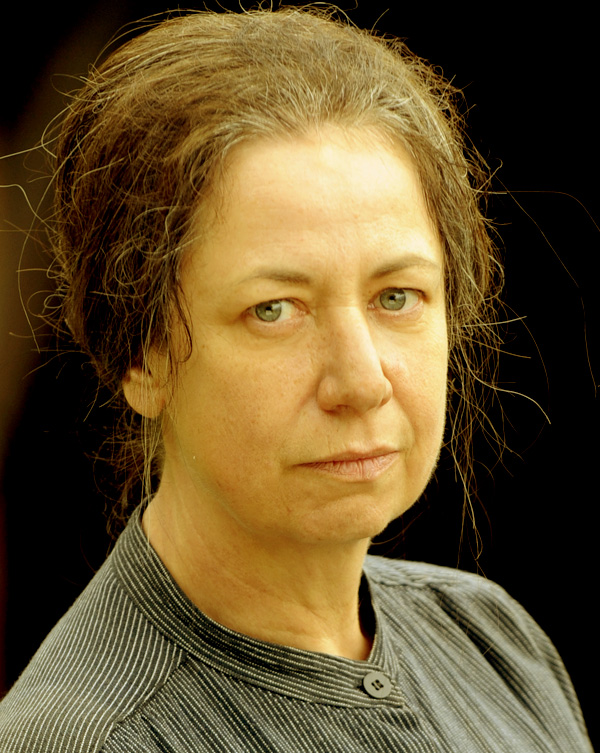Elisabeth Fritzl is a name that evokes a mixture of horror and sympathy, representing one of the most shocking cases of captivity and abuse in modern history. Her story is not just about the dark events that transpired but also about the incredible strength she exhibited in the face of unimaginable adversity. This article will delve deep into the life of Elisabeth Fritzl, exploring her background, the traumatic events she endured, and her journey towards reclaiming her life.
Through this narrative, we aim to shed light on the psychological and emotional impacts of such trauma, emphasizing the importance of awareness and support for victims of abuse. Elisabeth's case serves as a crucial reminder of the resilience of the human spirit and the need for societal change to prevent such tragedies from occurring in the future.
As we explore the layers of Elisabeth Fritzl's story, we will also provide insights into the broader implications of her experience, linking it to issues of mental health, social responsibility, and justice. Join us as we navigate through the life of one of the most resilient figures of our time.
Table of Contents
- Biography of Elisabeth Fritzl
- Early Life of Elisabeth Fritzl
- The Years of Captivity
- The Escape and Aftermath
- Psychological Impact of Traumatic Experiences
- Legal Consequences and Public Reaction
- Rebuilding Life After Trauma
- Lessons Learned from Elisabeth Fritzl’s Story
Biography of Elisabeth Fritzl
Elisabeth Fritzl was born on April 18, 1966, in Amstetten, Austria. She grew up in a seemingly ordinary family but faced complexities that would later shape her tragic narrative. Her father, Josef Fritzl, was known for his authoritarian demeanor, which would play a crucial role in the events that unfolded in her life.
| Date of Birth | April 18, 1966 |
|---|---|
| Place of Birth | Amstetten, Austria |
| Parents | Josef Fritzl and Rosemarie Fritzl |
| Children | Three children from captivity |
| Current Status | Living a private life in Austria |
Early Life of Elisabeth Fritzl
The early life of Elisabeth Fritzl was marked by a strict household and a complicated relationship with her father. Growing up, she exhibited a passion for music and literature, which provided an escape from her tumultuous home environment. However, as she entered her teenage years, her father’s controlling behavior intensified, leading to a series of tragic events that would alter the course of her life forever.
Family Dynamics
Elisabeth's family dynamics were complex, characterized by a lack of emotional support and a pervasive atmosphere of fear. Her father was known to be abusive, and Elisabeth often felt isolated from her family, leading her to seek validation beyond her home. This yearning for acceptance would later play a significant role in her vulnerability.
The Years of Captivity
In 1984, at the age of 18, Elisabeth Fritzl was lured into the basement of her family home by her father, who had constructed a hidden dungeon. There, she was subjected to horrific abuse over a period of 24 years. During her captivity, Elisabeth gave birth to seven children, three of whom were raised in the dungeon while the others were taken by Josef to be raised as his own.
The Conditions of Captivity
- Isolation from the outside world
- Physical and emotional abuse
- Lack of access to medical care
- Limited education for her children
The Escape and Aftermath
Elisabeth's escape in 2008 was a turning point that shocked the world. After managing to convince her father to take her to a hospital for one of her children, she seized the opportunity to seek help. This bold move led to the eventual arrest of Josef Fritzl and the beginning of Elisabeth's journey towards recovery.
Psychological Impact of Traumatic Experiences
The psychological impact of such prolonged trauma can be severe and long-lasting. Elisabeth's experience highlights the need for mental health support for survivors of abuse. Many victims experience symptoms of PTSD, anxiety, and depression as they grapple with the memories of their trauma.
Support Systems
After her escape, Elisabeth received extensive psychological support, which is crucial for anyone recovering from trauma. Support systems can include:
- Counseling and therapy
- Support groups for survivors
- Community resources for mental health
Legal Consequences and Public Reaction
The legal consequences for Josef Fritzl were severe. He was sentenced to life imprisonment for his crimes, which included rape, enslavement, and abuse. The case captured global attention, highlighting the failures in recognizing and addressing domestic abuse.
Rebuilding Life After Trauma
Rebuilding a life after such trauma is a challenging process. Elisabeth has made significant strides in reclaiming her identity and creating a safe environment for her children. Her story serves as an inspiration for many survivors, demonstrating that recovery is possible with the right support.
Lessons Learned from Elisabeth Fritzl’s Story
Elisabeth Fritzl's story teaches us valuable lessons about the importance of awareness and intervention in cases of domestic abuse. It emphasizes the need for societal vigilance and the establishment of support systems for victims.
We must also recognize the role of education in preventing such tragedies. By fostering open communication and educating individuals about healthy relationships, we can work towards a future where abuse is less likely to occur.
Conclusion
In summary, the story of Elisabeth Fritzl is one of unimaginable suffering but also incredible resilience. Her journey from victim to survivor is a testament to the strength of the human spirit and the necessity of societal change to support victims of abuse. We encourage readers to reflect on this story, support organizations that aid survivors, and advocate for change in their communities.
We invite you to leave a comment below, share this article, and explore more content related to issues of abuse and survival. Together, we can make a difference.
Penutup
Thank you for taking the time to read about the harrowing yet inspiring life of Elisabeth Fritzl. We hope that her story resonates with you and encourages a deeper understanding of the issues surrounding abuse and recovery. We look forward to welcoming you back to our site for more insightful articles.


